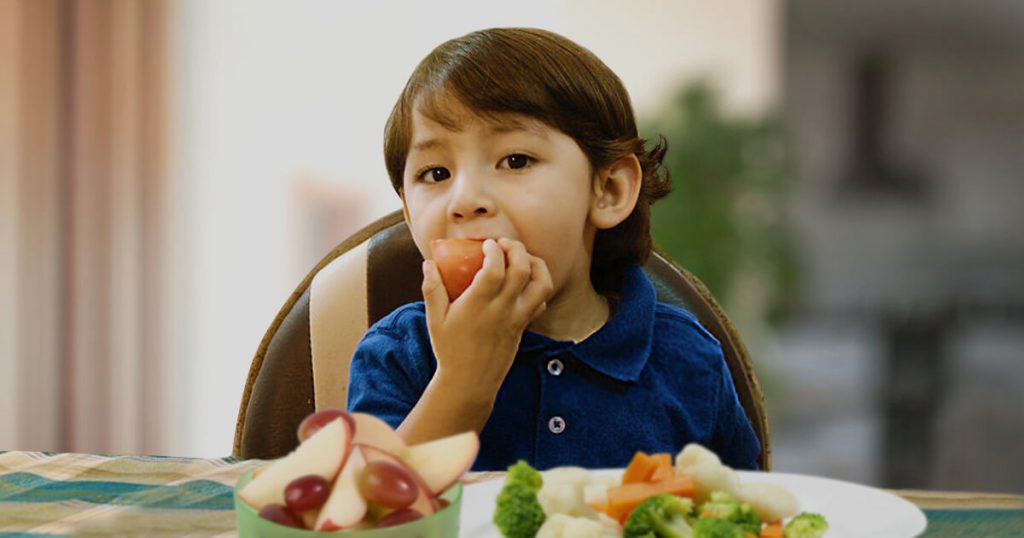The Importance of Vitamin A for Children

Vitamin A, is an essential nutrient your child needs. It helps her develop good vision and bone growth, and guards against infections. Vitamin A is also important in cell tissue growth, especially for her skin, hair, and nails.
Recommended daily intake
As your child grows, she will need more Vitamin A. The recommended intake values according to the recommended nutrient intake for Malaysia 2005 (Msia RNI 2005) are as follows:
- Ages one to three: 400mcg per day
- Ages four to six: 450mcg per day
Do note that the values stated above are not strictly exact daily values, but the recommended average spread over a week. It is okay for some days to have more vitamin A intake than others.
Sources of vitamin A
Vitamin A is found in many foods and particularly abundant in colourful fruits and vegetables. Carrots, sweet potatoes, spinach and squash contain high values. Kale, cantaloupes, red bell peppers, apricots and mangoes are also good vitamin A sources. Broccoli, frozen peas, milk and eggs are other common foods that contain this nutrient. Different brands and products offer different values so check the relevant nutrition label and estimate accordingly.
Potential vitamin A side effects
Too much of a good thing can be bad. In particular, vitamin A from animal sources is the ‘active form’. Overdose of active form vitamin A can result in nausea, vomiting, giddiness, lack of muscle coordination, and headache. In the long run, it can even cause osteoporosis, liver problems, and nervous system dysfunction.
That said, it is near impossible to overdose on carotenoids – the type of vitamin A found in vegetables and fruits. This is because the body converts only what it needs into the active form when needed. Fruits and vegetables are generally safe in that regard.
In conclusion, be mindful of what you feed your child. Always check with your healthcare professional or child nutritionist when you are in doubt.




